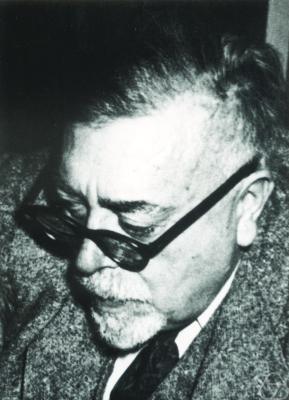
Norbert Wiener was an American mathematician, computer scientist and philosopher. He became a professor of mathematics at the Massachusetts Institute of Technology (MIT). A child prodigy, Wiener later became an early researcher in stochastic and mathematical noise processes, contributing work relevant to electronic engineering, electronic communication, and control systems.

Syngman Rhee was a South Korean politician who served as the first president of South Korea from 1948 to 1960. Rhee is also known by his art name Unam. Rhee was also the first and last president of the Provisional Government of the Republic of Korea from 1919 to his impeachment in 1925 and from 1947 to 1948. As president of South Korea, Rhee's government was characterised by authoritarianism, limited economic development, and in the late 1950s growing political instability and public opposition.
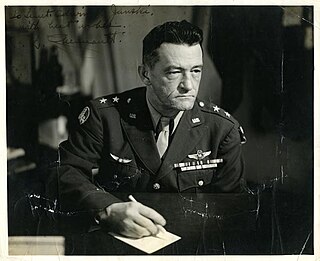
The American Volunteer Groups were volunteer air units organized by the United States government to aid the Nationalist government of China against Japan in the Second Sino-Japanese War. The only unit to actually see combat was the 1st AVG, popularly known as the Flying Tigers.
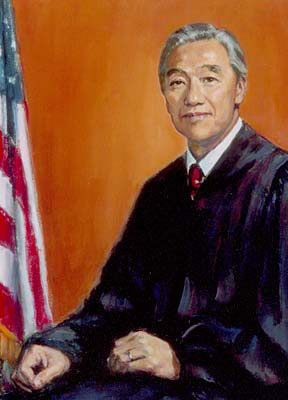
Herbert Young Cho Choy was the first Asian American to serve as a United States federal judge and the first person of Korean ancestry to be admitted to the bar in the United States. He served as a United States circuit judge of the United States Court of Appeals for the Ninth Circuit.

South Korea competed as Korea at the 1996 Summer Olympics in Atlanta, United States. 300 competitors, 189 men and 111 women, took part in 160 events in 25 sports.

The Korean independence movement was a series of diplomatic and militant efforts to liberate Korea from Japanese rule. The movement began around the late 19th or early 20th century, and ended with the surrender of Japan in 1945. As independence activism on the peninsula was largely suppressed by Japan, many significant efforts were conducted abroad by the Korean diaspora, as well as by a number of sympathetic non-Koreans.

The Battle of Changde was a major engagement in the Second Sino-Japanese War in and around the Chinese city of Changde (Changteh) in the province of Hunan. During the battle, the Imperial Japanese Army extensively used chemical weapons.
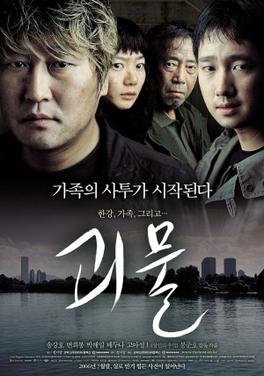
The Host is a 2006 South Korean epic monster film directed and co-written by Bong Joon-ho. Starring Song Kang-ho, Byun Hee-bong, Park Hae-il, Bae Doona and Go Ah-sung, it tells the story of a monster that kidnaps a man's daughter, and his attempts to rescue her.

The Korean Liberation Army, also known as the Korean Restoration Army, was the armed forces of the Provisional Government of the Republic of Korea. It was established on September 17, 1940, in Chongqing, Republic of China, with significant financial and personnel support from the Kuomintang. It participated in various battles and intelligence activities against the Japanese, including alongside the British Army in India and with the United States in the Eagle Project. The group only reached several hundred personnel at its peak, and faced constant funding issues, infighting, and difficulty achieving recognition from global powers. The modern Republic of Korea Armed Forces is widely considered to be the successor of the Korean Liberation Army.

Kim Won-bong was a Korean anarchist, Korean independence activist, communist, and later statesman for North Korea.
Lee Khoon Choy was a Singaporean politician. A member of the governing People's Action Party, he was the Member of Parliament for Braddell Heights SMC between 1977 and 1984, and Hong Lim SMC between 1965 and 1976.

Choe Chang-ik was a Korean politician in the Japanese colonial era. He was a member of the Korean independence movement. He was also known by the names Choe Chang-sok, Choe Chang-sun, Choe Tong-u, and Ri Kon-u.
Progressive Party was a short-lived moderate left political party founded after the Korean War in South Korea under the leadership of Cho Bong-am. It was a major political force from 1956 to 1958, and fell apart in 1959.
The Korean Volunteer Army, was an armed wing of the Joseon Independence Alliance, formed in 1942 by reorganizing the North China branch of the Joseon Volunteer Corps. Based in Taihang Mountain, they fought an armed struggle against the Japanese until the end of World War II. They were disbanded and many of them were incorporated into the Korean People's Army. At the time of the establishment of the Democratic People's Republic of Korea, they were called the Yan'an faction, but were purged until 1958 after the Korean War.

Christine Choy is a Chinese-American filmmaker. She is known for codirecting Who Killed Vincent Chin?, a 1988 film based on the murder of Vincent Jen Chin.

Yu Jae Hung was a Republic of Korea (ROK) military officer who commanded the ROK II Corps and ROK III Corps in the Korean War.

The Korean National Revolutionary Party, or KNRP, was a nationalist party formed by exiles in Shanghai in 1935 to resist the Japanese occupation of Korea. At first it was the main nationalist Korean political party, but as the Sino-Japanese War (1937–45) progressed the rival Korean National Party, later Korea Independence Party, gained more influence with the Chinese Nationalist government in Chongqing and came to dominate the Korean Provisional Government. The KNRP of America was a significant factor as a source of funds and a link to the US government. The KNRP was dissolved in 1947.
The Korean Patriotic Organization (Korean: 한인애국단) was a militant organization under the Korean Provisional Government (KPG) and founded in Shanghai, China in 1931. It aimed to assassinate military and government leaders of the Empire of Japan. The group also went by the name Ŭisaenggun.
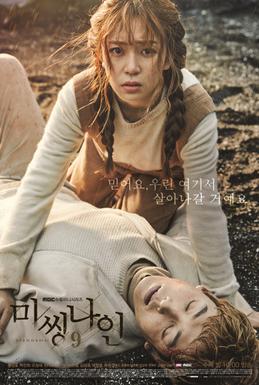
Missing 9 is a South Korean television series starring Baek Jin-hee and Jung Kyung-ho. It aired on MBC from January 18 to March 9, 2017 on Wednesdays and Thursdays at 22:00 (KST) for 16 episodes.

The Prison is a 2017 South Korean prison action film directed by Na Hyun and starring Han Suk-kyu and Kim Rae-won. It was released on March 23, 2017.